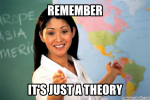from Lars Syll For many people, deductive reasoning is the mark of science: induction – in which the argument is derived from the subject matter – is the characteristic method of history or literary criticism. But this is an artificial, exaggerated distinction. Scientific progress … is frequently the result of observation that something does work, which runs far ahead of any understanding of why it works. Not within the economics profession. There, deductive reasoning based on logical...
Read More »Inflation Today: Economists Joseph Stiglitz, Dean Baker, and Jason Furman Discuss US Inflation
On March 3, 2022, the Center for Economic and Policy Research (CEPR), along with the Roosevelt Institute and the Columbia University Initiative for Policy Dialogue, convened three leading economists to look at some of the major issues relating to current inflation in the United States: What are the risks that elevated inflation will be an ongoing problem? What are the prospects for the living standards of the majority of Americans going forward? What is an appropriate macroeconomic policy...
Read More »All wet like a river
from Peter Radford I am still stuck wondering about Diane Coyle’s defense of economics. Heraclitus exists only in fragments. That’s unfortunate because aphorisms are not the best way to tackle the hubris of the technocrat. He was on to something though. We all know his well-worn saying about stepping into rivers. He tells us that they’re never the same twice. And yet they stay the same. Beware, then, the analyst that thinks she sees a regularity in our economy. It may look the...
Read More »Reducing oil prices without ruining the environment: pay people not to drive
from Dean Baker From my Twitter feed it seems that Sarah Palin has been resurrected. All sorts of centrist-liberal types are yelling “drill baby, drill!” as a response to Russia’s invasion of Ukraine. They have been pushing for ignoring environmental regulations and even directly subsidizing fracking. While that is no doubt music to the ears of the fossil fuel industry, this is going backwards about as quickly as we can in our effort to reduce greenhouse gas emissions. There is an...
Read More »The Ukraine war or the preponderance of ‘fertilizer and soil’ over ‘blood and soil’.
Egypt is alarmed. And rightly so. A war in one of the grain baskets of the world, Ukraine, will affect us all but Egypt, and Turkey, will be hit even harder than many other countries. And they know it. According to Reuters, “Egypt, often the world’s top wheat importer, is working on a plan to buy wheat from other regions rather than Russia and Ukraine … “There are 14 approved countries Egypt could import wheat from, some of which are outside Europe” … Russia...
Read More »How to make good decisions in a radically uncertain world
from Lars Syll To understand real-world decisions and unforeseeable changes in behaviour, ergodic probability distributions are of no avail. In a world full of genuine uncertainty — where real historical time rules the roost — the probabilities that ruled the past are not necessarily those that will rule the future. Time is what prevents everything from happening at once. To simply assume that economic processes are ergodic and concentrate on ensemble averages — and a fortiori in any...
Read More »Two problematic values in 20th century economics
Twentieth-century economics pretended to be a value-free science. Among the values in fact adhered to and promulgated are two that turn out to be especially problematic: the goal of economic growth, and the elevation of consumerism. Growth is a macroeconomic issue, while consumerism plays out on the micro scale of individual motives, choices, and actions. Mediating between these are business enterprises, especially corporations. These are the actors whose interests are served by the...
Read More »Reducing oil prices without ruining the environment: pay people not to drive
from Dean Baker From my Twitter feed it seems that Sarah Palin has been resurrected. All sorts of centrist-liberal types are yelling “drill baby, drill!” as a response to Russia’s invasion of Ukraine. They have been pushing for ignoring environmental regulations and even directly subsidizing fracking. While that is no doubt music to the ears of the fossil fuel industry, this is going backwards about as quickly as we can in our effort to reduce greenhouse gas emissions. There is an...
Read More » Real-World Economics Review
Real-World Economics Review






